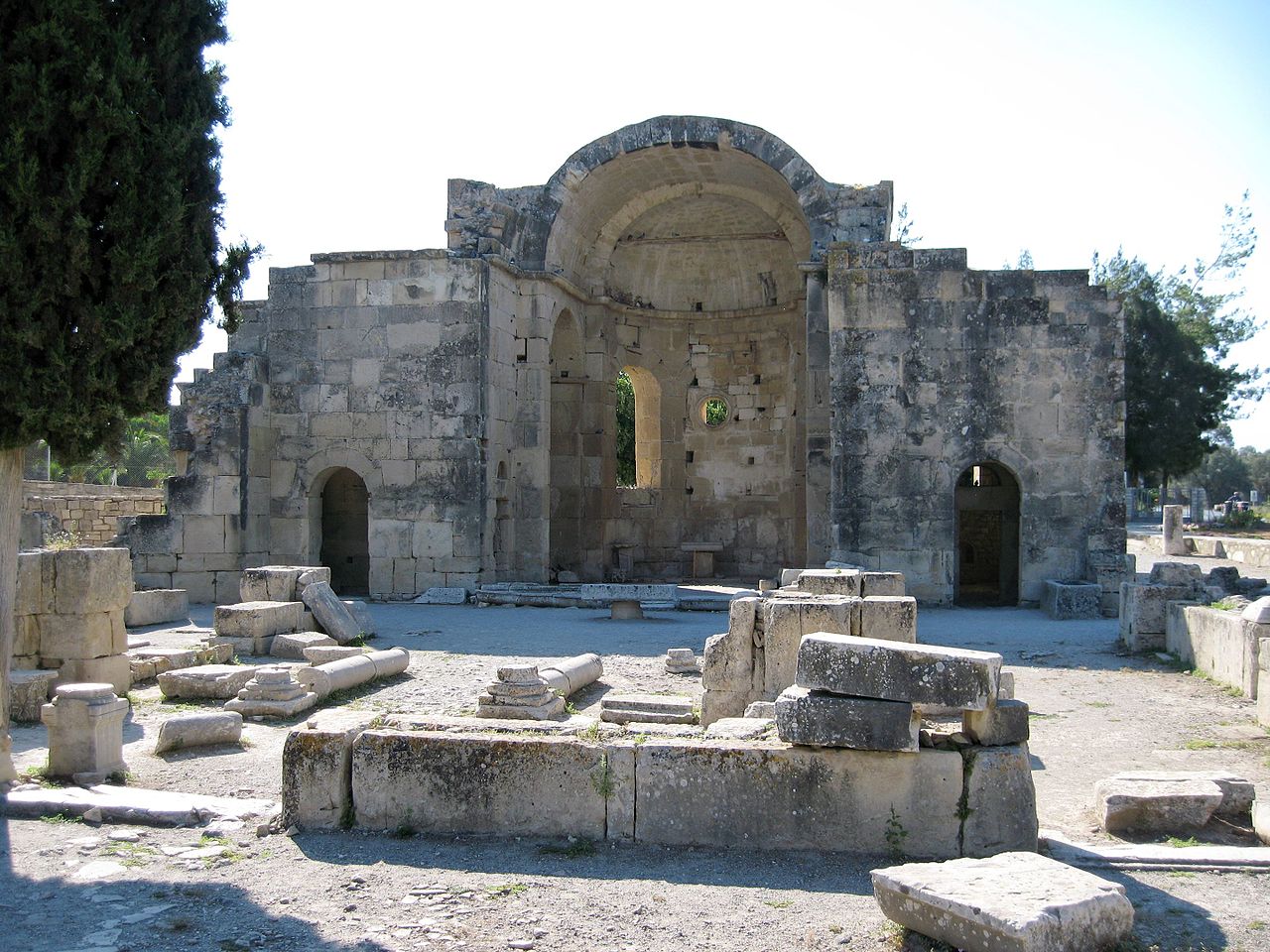[Greek] ἄμαχος (amachos), [Latin] non litigiosos, [Latin] percussio: peaceable, abstaining from fighting, not contentious, not a brawler, non-combatant; 1Tim.3:3, Tit.3:2

Remains of St. Titus Church in Gortys (municipality of Crete)
Background information:
Greek Hellenism: This term means with whom no one fights with, persuasive in words and thought, impregnable, irresistible, not having fought, and taking no part in battle (disinclined to fight). Herodotus’ The Histories 5.3 states “The Thracians are the biggest nation in the world. If they were under one rule, they would be invincible and the strongest nation on earth. However, there is no way or means to bring this about, they are weak.” Xenophon’s Cyropaedia 6.1.36 states “I had too poor an opinion of myself to suppose that I should have the strength of will to be thrown in contact with beauty and be indifferent to it.” Xenophon’s Cyropaedia 4.1.16 states “While the rest of theirs have not tasted of battle; and if we do not compel them to fight, they will remain unacquainted with our strength and with their own, and they go away because of their ignorance and cowardice.”
New Testament: This term means peaceable, not contentious, or not looking for a fight. 1Tim. 3 addresses the desirable qualities and qualifications of a bishop. The bishop is required to have moderation in habits and graciousness. Tit. 3 addresses the desirable qualities of a Christian. Christians are called to respectful and obedient to authorities. Christians are called to peaceful, respectful, and gracious towards others.
Scripture:
“Not a drunkard, not aggressive, but gentle, not contentious, not a lover of money.” 1Tim.3:3
This scripture addresses the desirable qualities of a bishop.
“They are to slander no one, to be peaceable, considerate, exercising all graciousness toward everyone.” Tit.3:2
This scripture address the desire qualities of the Christian.
Christian community in Crete: The Letter to Titus indicates that Titus, a Greek Gentile, as the person in charge of developing the church on the large Mediterranean island of Crete. Titus is charged with the task of organizing the church through the appointment of presbyters and bishops. This letter indicates the appropriate Christian values and attitudes. The community is to serve as model for evangelizing the social world in Crete. Good works are also to be evidence of their faith in God. The Letter to Titus was perhaps written in mid 60’s A.D.
Etymology: The Greek term amachos contains the prefix (a-) meaning without or not. Essentially, this term means not fighting or causing disturbance. A machination is a plot or scheme. An instigator is one who machinates (engages in plots or schemes). The Latin litigiosus means contentious or quarrelsome. The Latin verb litigare means to dispute or to quarrel. The Latin perscussio means a striking or a beating. The Latin repercussio means a striking back or a beating back.
Conclusion:
Machination, machinate, litigious, litigate, percussion, percussive, repercussion.
In the Greek Hellenism, it was very interesting to discover the more nuanced meanings of this term. Herodotus makes reference to weakness as being unable to unite. Aeschylus refers to a king opposed to war. Xenophon makes refers to one not to having tasted battle. Xenophon makes reference to one unable to fight against her irresistible beauty (talk about a smooth line talking with the fairer sex). ♥♥♥♥
In the New Testament, this term essentially defines the desirable qualities of bishops and Christians. These examples serve to establish the foundation for Christian communities.
It was also interesting to see that the Latin meanings are presented in both a positive and negative sense. Machination is perceived in a negative sense. The Latin percussio and litigiosis also convey a negative sense.
I also could have talked about what Epimenides said about the Cretans. But I wanted to keep this post peaceable!
